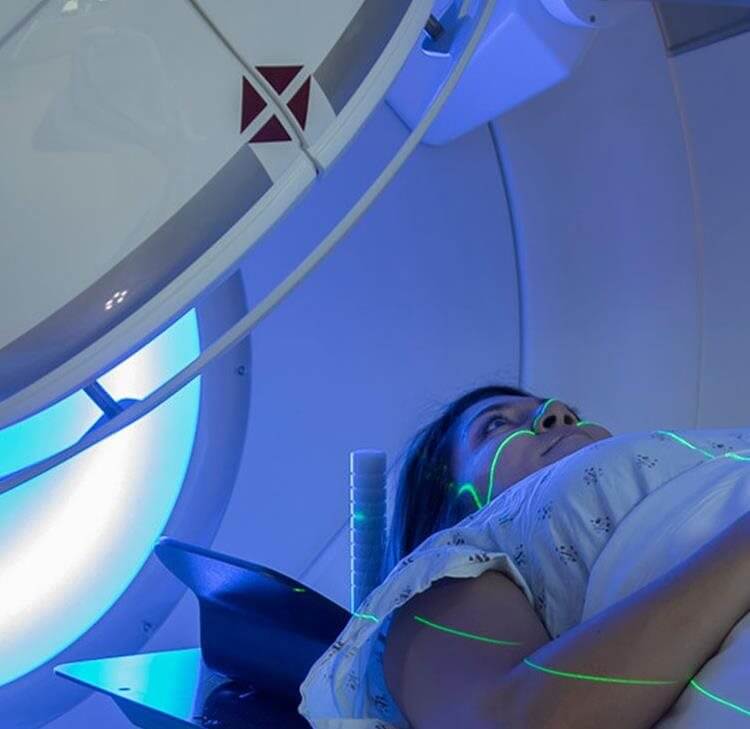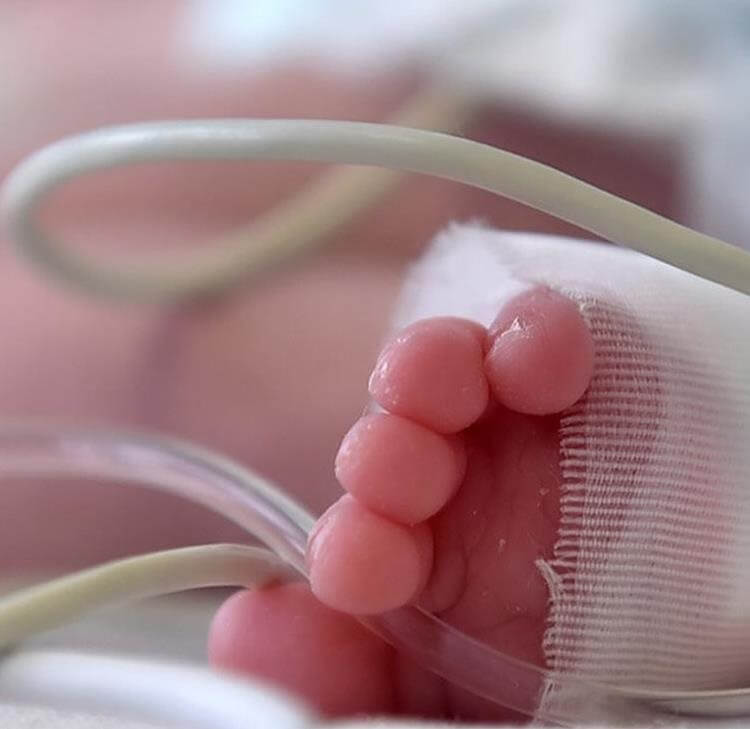Community Diagnostic Centres - the opportunities
Browne Jacobson commercial health partner, Jonathan Hayden, speaks to Darren Ramen, UK head of legal at Alliance Medical about the interest surrounding Community Diagnostic Centres (CDCs).
The NHS Long Term Plan, published in January 2019, laid out a 10-year vision to improve care for the population and contained many recommendations for the management and delivery of NHS services. A key chapter in the plan focused on making progress on care quality and outcomes, and better care for major health conditions, including cancer. As part of the solution to improve cancer outcomes, NHS England commissioned Professor Sir Mike Richards, a leading oncologist and former national cancer director, ‘to lead a review of the current cancer screening programmes and diagnostic capacity’ (Sir Mike Richards has also recently been appointed chair of the UK National Screening Committee).
The Richards report, Diagnostics: Recovery and Renewal was published in October 2020 and identified the need for Community Diagnostics Hubs or, as they have become known, Community Diagnostic Centres (‘CDCs’).
Browne Jacobson commercial health partner, Jonathan Hayden, spoke to Darren Ramen, UK head of legal at Alliance Medical about the interest surrounding CDCs.
As Darren mentions: “Diagnostics form a key part of the health and care journey for many patients (over 85% of all clinical pathways). The fundamental aim of diagnostics is to identify and characterise a disease or condition to allow subsequent treatment, if possible. Every year, the NHS spends over £6bn on over 100 diagnostic services, carrying out an estimated 1.5bn diagnostic tests.”
But are providers ready and waiting to participate in the CDCs?
Darren certainly thinks so: “Alliance Medical (‘AML’) has been working on a CDC type model for the last 6 years – although the focus has largely been on imaging so far, this is now not just about imaging. The additional elective diagnostic modalities required within a CDC do not pose the same complex issues for facility delivery as imaging and can easily be added to the models we have created.”.
The government has committed £2.3bn of capital funding over the next three years to transform diagnostics, with potentially 100 community diagnostic centres ultimately being established across England. It is expected that CDCs will provide a growing proportion of elective diagnostic provision across systems over this period.
2021/22 has been a foundation year to support mobilisation, with 40 sites on the initial list of proposed CDCs - https://www.gov.uk/government/news/40-community-diagnostic-centres-launching-across-england. NHS England & Improvement has also established a framework agreement of potential CDC providers, following a procurement process which started last Summer.
The plan is for CDCs to, ideally, be located separately from other acute hospital services: either within a dedicated building on an existing acute site, or ideally on a separate site.
The CDC will be staffed by a multi-disciplinary team of staff including nurses and radiographers and will be open 7 days a week (for extended, 12-14 hour, opening periods).
CDCs are likely to fall within one of three broad design models:
- Standard – providing minimum requirements across imaging, physiological measurement and pathology.
- Large – providing the “standard” requirements plus: endoscopy (including gastroscopy, colonoscopy and flexi sigmoidoscopy) and potentially other parts of the diagnostic pathway (such as outpatient consultations) and other services required locally.
- Hub and spoke model – where the central hub provides at least the “standard” requirements, and the ‘spokes’ provide further capacity for specific tests either through a satellite location, mobile unit or pop-up.
In Darren’s view: “The locations, size and scope of CDCs are likely to be different for different locations, there will not be a one size fits all. Depending on the density of the population, CDCs may vary greatly in size and scope and providers like AML will need to work closely with commissioning partners to develop and support local needs. Staffing will also be a complex area to manage – it is likely that there will be different groups of staff (NHS, another independent sector provider, facilities management) that all need to be integrated under the umbrella of the CDC.”.
Whether you are a commissioner or potential provider (or even a potential service user), CDCs are an exciting development and are likely to form a growing part of our local healthcare services.
If you would like to discuss opportunities surrounding CDCs, please get in touch with either Jonathan or Darren.
You may be interested in...
Opinion - Maternity services
University Hospital Leicester hold their inaugural Maternity Safety Conference
In Person Event
Navigating your way through high profile sensitive reviews and investigations
Opinion
Junior doctors vote unanimously in favour of strike action
Opinion
Can toilet facilities amount to sex discrimination?
Published Article
Digital Twin Technologies: key legal contractual considerations
Opinion
Consultation launched on minimum ambulance service levels during strike action
Opinion - Maternity services
Changes to redundancy protections for employees post-maternity leave
Legal Update - Shared Insights
Shared Insights: Coroners’ Question Time
Press Release - Careers
Browne Jacobson health lawyer wins major accolade at Made in Manchester Awards
Opinion
BMA issues medical locum rate card for junior doctors
Legal Update
Employee who refused to wear a face mask fairly dismissed
Opinion
New toolkit to support safer recruitment in the care sector
Legal Update
Green Leases for the NHS
Guide
Government response to the consultation on the Higher-Risk Buildings Regulations
Published Article
The first 100 days for Integrated Care Boards
Opinion
Menopause and the workplace
On-Demand
Future of Care - Retirement Living webinar
In Person Event
Independent Healthcare In-House Lawyers Forum
Opinion
Government introduces new “anti-striking laws” to be discussed in Parliament
Press Release - Maternity services
Father Christmas comes to University Hospital Coventry and Warwickshire care of Browne Jacobson’s Birmingham Office Community Action Group
Opinion - Maternity services
The Patient Safety Incident Response Framework (PSIRF) and its impact on maternity services
Legal Update - Shared Insights
Shared Insights: Looking ahead to 2023 – what Health and Care employers need to know
Opinion
Coroner’s refusal to issue a Prevention of Future Deaths Report following death in prison custody inquest was lawful
Article
Mental health, eating disorders and placement of young people
Legal Update
LPS consultation and ‘go live’ planning
Opinion
Consultation launched on plans to amend NHS pension rules to bolster NHS workforce
Legal Update
Getting ready to face Industrial Action
Legal Update - Shared Insights
Shared Insights: Prolonged disorders of consciousness
Published Article
How AI and technology can transform the healthcare sector
On-Demand
The UK's green agenda - the outcomes of COP27 and actions since COP26
On-Demand
Insights from the Chief Coroner by His Honour Judge Thomas Teague, KC
Opinion
BMA advises consultants not to accept less than the BMA minimum rate card for extra-contractual work
The BMA is advising all NHS / HSCNI consultants to ensure extra-contractual work is paid at the BMA minimum recommended rate and to decline offers of extra-contractual work that doesn't value them appropriately.
On-Demand
Leadership and lessons learnt during the Pandemic by Professor Jonathan Van-Tam
Published Article
Local authority duties: Up in the air
In ‘failure to remove’ claims, the claimant alleges abuse in the family home and asserts that the local authority should have known about the abuse and/or that they should have removed the claimant from the family home and into care earlier.
Legal Update - Shared Insights
Shared Insights: The Patient Safety Incident Response Framework
Guide - Maternity services
Mediation guide for Clinicians: What do you need to know and how do you need to prepare
Opinion
NHS England – Updated Transaction Guidance
NHS England has published (October 2022) new guidance - Assuring and supporting complex change: Statutory transactions, including mergers and acquisitions.
Opinion
NHS England – Assuring and supporting complex change
NHS England has issued an updated (publication 11 October 2022) suite of Complex Change guidance about how it will assure and support proposals for complex change that are reportable to it. New and (where it is still in force) existing Complex Change guidance are as follows.
Legal Update
The Retained EU Law
Created at the end of the Brexit transition period, Retained EU Law is a category of domestic law that consists of EU-derived legislation retained in our domestic legal framework by the European Union (Withdrawal) Act 2018. This was never intended to be a permanent arrangement as parliament promised to deal with retained EU law through the Retained EU Law (Revocation and Reform) Bill (the “Bill”).
Legal Update
Economic crime and cybercrime
It is clear that the digital landscape, often termed cyberspace, is a man-made environment, in which human behaviour dominates and where technology both influences and aids our role in it — through the internet, telecoms and networked computer systems, which are often interdependent. The extent to which any organisation is potentially vulnerable to cyber-attack depends on how well these elements are aligned.
























